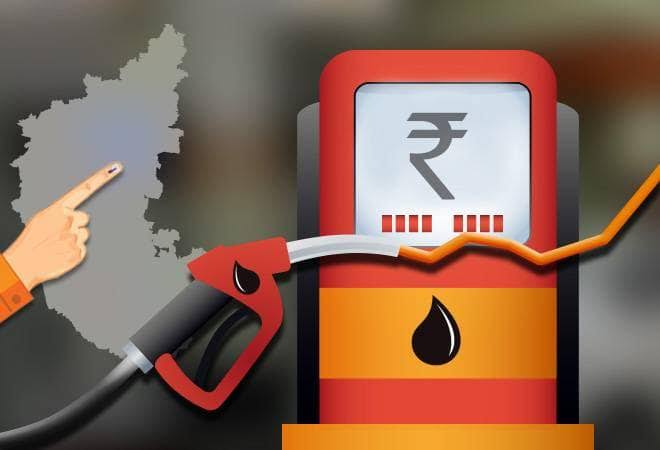Just a day after the 2019 Lok Sabha polls came to an end, state-owned oil marketing companies (OMC) on Monday have raised the retail price of petrol and diesel signalling that election induced price moderation for petroleum products has come to an end.
On Monday, petrol prices increased by 9 paisa per litre to Rs 71.12 and diesel by a higher 15 paisa per litre to Rs 66.11 in Delhi, ending 15 day run where the product prices maintained consistent fall. Retail petrol and diesel prices have consistently moved downwards in May even though global oil prices have remained firm.
An executive of state-owned oil marketing termed Monday’s increase routine based on trailing 15 day price of petrol and diesel in international markets. But informed sources said that companies were under instruction from the government to keep product prices moderate during the elections.
With polls now drawing to a close, OMCs may now cover up for their previous losses and increase petrol and diesel prices in phases irrespective of market conditions. This would mean that consumers could face the first shock from higher transport fuel prices during the initial leg of the new government at the centre.
With global conditions including tension in the gulf region and squeezing of oil supplies from Iran and Venezuela favouring a further increase in crude prices, there could be no letting from higher transport fuel in India unless government cuts its share of excise duty and induced states to reduce VAT.
IANS wrote on May 7 that oil companies may raise the retail price of the two transport fuels between Rs 3-5 per litre in phases to make up for losses they incurred by keeping the prices at artificially low levels in the run up to the elections
Government sources said that oil companies sold petrol at almost Rs 5 per litre discount and diesel at Rs 3 per litre discount in the months of March and April when average crude oil price of Indian basket hit a high of about $67 a barrel and $71 barrel respectively. The level has also maintained during most days in May so far.
At this level of crude oil prices (of over $70 a barrel), petrol was priced at over Rs 78 a litre and diesel over Rs 70 a litre in August 2018. It was however, priced at around Rs 73 and Rs 67 per litre in months of March and April, respectively, and has fallen further in May. This suggests that OMCs losing heavily on retail sale of the two products.
As per one market assessment, oil companies lose just over Rs 150 crore per day if retail petrol and diesel prices are under-priced by Re 1 per litre on any given day. Going by this yardstick, OMCs May lost several thousand crores in the run up Lok Sabha elections 2019.
The OMCs have been soft on increasing petrol and diesel prices since the beginning of 2019 but it has become more pronounced from March when election dates were announced. Since March, there have been numerous days when both petrol and diesel prices have remained static despite sharp movement in global oil prices.
This is not the first time that government has controlled the price of petrol and diesel.
During the Karnataka state elections last year, petrol and diesel prices remained unchanged for a 19-day period despite rising global crude oil prices. And soon after polls, there was a non-stop 16-day hike period, resulting in an overall rise of approximately Rs 3.5 in both petrol and diesel rates.
The same trend was observed during the Gujarat elections in 2017 when oil PSUs had stopped revising/increasing fuel prices 14 days prior to polling.




